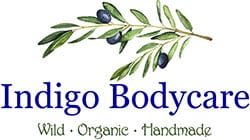In this article, we will cover the top questions around natural skincare. What does natural skincare mean? Is it the same as organic skincare? Is it healthy? Is it toxic? Is it eco-friendly? How can we make sure we do in fact use natural skincare?
Is natural skincare healthy?
The word “natural” is not regulated, as a result, it can be used by any skincare manufacturer to claim their products are natural.
Can natural skincare be toxic?
The word “natural” is extensively used, however, it is recommended to use caution when seeing the word. For example, there are cosmetic companies that label products as natural but that contain ingredients that can be toxic to human health. One of the ingredients we commonly come across in “natural” skincare is fragrance. A fragrance is typically a synthetic ingredient made in a factory to enhance the way the cosmetic smells. Fragrances may contain a group of chemicals called phthalates which may in turn be disrupting your endocrine system and thus your hormones. Synthetic fragrances are not the same as essential oils which are derived from various parts of plants, such as the flowers, bark, leaves or fruits.
It is estimated that over 18 billion pounds (8.2 billion kilograms) of phthalates are used each year and are one of the world’s high production chemical families. Phthalates make plastic soft and flexible. A 2010 study noted that “phthalates are found in adhesives, automotive plastics, detergents, flooring, raincoats, personal care products (cosmetics, shampoos, fragrances, etc.), plastic bags, garden hoses, building materials, household furnishings, pharmaceuticals, nutritional supplements, children’s toys, food packaging, cleaning material, insecticides, and other common compounds. Phthalates are also used to manufacture the 500 million pairs of disposable medical examination and sterile surgical vinyl gloves that are produced every year.” ¹ The softer and more flexible plastics typically have more phthalates.
The same 2010 study found that "phthalates have been associated with a number of serious health problems, including infertility, testicular dysgenesis, obesity, asthma, and allergies, as well as leiomyomas and breast cancer." ¹ This is cause for concern as most of the population is effectively swimming in a sea of chemicals that can possibly be causing health problems.
We are bombarded with endocrine-disrupting chemicals (EDCs) which are everywhere, which include bisphenol A (BPA), phthalates, pesticides, air fresheners, hair dyes, sunscreens, and cosmetics, to name only a few. BPA is one of the most common chemicals that humans are exposed to because BPA is a key chemical used to manufacture many plastic products, including the hard clear plastic called polycarbonate, food containers, toys, medical products, water bottles, utensils, bags, and thermal paper such as cash register receipts. In addition to the environmental risks associated with plastics and EDCs, there are also multiple risks for human health. Endocrine-disrupting chemicals were covered in the 2008 Canadian documentary called The Disappearing Male.
There is much evidence that suggests that endocrine-disrupting chemicals (EDCs) contribute to cancer, diabetes, obesity, metabolic syndrome, insulin resistance, autoimmunity including multiple sclerosis, Parkinson’s disease, and infertility. 2,3,4,5,6
Is natural skincare eco-friendly?
There are various factors in determining if a product is eco-friendly. One key factor is the packaging. Can the packaging be re-used or recycled? Is the packaging made from glass or plastic? Single use plastics are already a massive environmental problem and for natural skincare to be delivered in this format is not ideal. At Indigo Bodycare, we use glass as much as possible and predominantly miron glass. You can read more about our packaging here.
Is natural skincare the same as organic skincare?
Organic skincare is made with ingredients that are grown without the use of artificial pesticides, fertilizers, or herbicides and is not made using genetically modified organisms. Natural skincare usually refers to cosmetics free of synthetic or artificial ingredients or additives but as demonstrated above, since the word natural is not regulated, many products claiming to be natural do contain synthetic ingredients.
How do I know if my skincare is truly natural?
One way of knowing your skincare is natural is to make it yourself using natural and wild or organic ingredients. Please keep an eye at our Courses page, where you can learn how to make your own skincare at home with quality ingredients.
If you are buying skincare, then a good thing to look for is the list of ingredients. Cosmetic companies are required to list ingredients, so you know what you are buying. If you see water, or aqua as an ingredient, you will usually also see at least one but usually more preservatives. This is because water-based skincare is easily susceptible to contamination with bacteria, yeast, and mold. At Indigo Bodycare, our products focus on oil-based ingredients rather than water-based which helps us avoid these ingredients.
We feel that our customers deserve the best botanical ingredients to make the most natural skincare in the true sense of the word, in other words the best natural skincare. We formulate all our products keeping our commitment to excellence at the forefront of every product.
References:
1. Altern Med Rev. 2010 Sep;15(3):190-6. Toxic effects of the easily avoidable phthalates and parabens. Walter J Crinnion.
2. J Environ Public Health. 2012;2012:713696. Endocrine-disrupting chemicals: associated disorders and mechanisms of action. Sam De Coster, et al.
3. Environ Health Perspect. 2006 Jan;114(1):106-12. The estrogenic effect of bisphenol A disrupts pancreatic beta-cell function in vivo and induces insulin resistance. Paloma Alonso-Magdalena, et al.
4. Autoimmune Dis. 2014;2014:743616. The Potential Roles of Bisphenol A (BPA) Pathogenesis in Autoimmunity. Datis Kharrazian.
5. J Appl Toxicol. 2017 Apr;37(4):479-484. Correlation between antibodies to bisphenol A, its target enzyme protein disulfide isomerase and antibodies to neuron-specific antigens. Datis Kharrazian, Aristo Vojdani.
6. Toxics. 2019 May6;7(2):26. The Associations between Immunological Reactivity to the Haptenation of Unconjugated Bisphenol A to Albumin and Protein Disulfide Isomerase with Alpha-Synuclein Antibodies. Datis Kharrazian, Martha Herbert, Aristo Vojdani.
